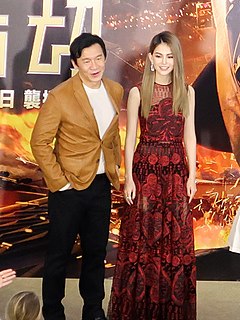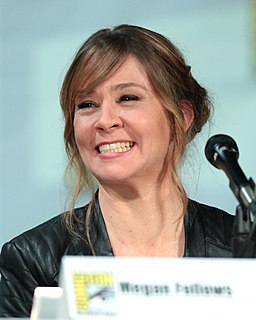A Quote by Alex Tizon
Television and movies were our biggest teachers. When we came to the United States, the Vietnam War was just ratcheting up. And so the Asian faces that I saw on the news, they were the face of the enemy. Asian men, particularly, were either small, ineffective, or they were evil. And those messages were deeply, deeply embedded in me for many years.
Related Quotes
It's always fun to see faces that are either familiar or resemble yours. I was fascinated by movies like 'Big Trouble in Little China' growing up because there were so many Asian people in it! The same with 'Year of the Dragon' or 'The Last Emperor'. It was just so great to see so many Asian actors working.
Most of us who were opposed to the war, especially in the early '60's - the war we were opposed to was the war on South Vietnam which destroyed South Vietnam's rural society. The South was devastated. But now anyone who opposed this atrocity is regarded as having defended North Vietnam. And that's part of the effort to present the war as if it were a war between South Vietnam and North Vietnam with the United States helping the South. Of course it's fabrication. But it's "official truth" now.
I was a young feminist in the '70s. Feminism saved my life. It gave me a life. But I saw how so much of what people were saying was not matching up with what they were doing. For example, we were talking about sister solidarity, and women were putting each other down. We were talking about standing up for our rights, and women weren't leaving abusive relationships with men. There were just so many disconnects.
I came to realize that I was always looking for myself in the women I loved. I looked at their lovely, clean faces, and saw myself reflected in them. They, on the other hand, looked at me and saw the dirt on my face and, however intelligent and self confident they were, they ended up seeing themselves reflected in me and thinking that they were worse than they were. Please don't let that happen to you.
The advertising men made it clear that there were two ways of looking at ideas in a war against fascism. Those of us who were working on the project believed ideas were to be fought for; the advertising men believed they were to be sold. The audience, those at home in wartime, were not 'citizens' or 'people.' They were 'customers.'
For many years the stakes were clear. There were the Arabs attacking us and us defending ourselves, so basically there were no real problems [between the United States and Israel]. Now there are many small cells, and each of them can destroy on their own. Some can arrive at New York and kill thousands of people.
Those who came to the United States didn't realize they were white until they got here. They were told they were white. They had to learn they were white. An Irish peasant coming from British imperial abuse in Ireland during the potato famine in the 1840s, arrives in the United States. You ask him or her what they are. They say, "I am Irish." No, you're white. "What do you mean, I am white?" And they point me out. "Oh, I see what you mean. This is a strange land."


































